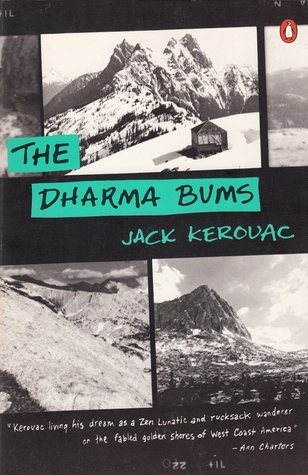 There’s a rhetorical trick called apophasis where you point out something by not pointing it out. For example, Donald Trump’s “I refuse to call Megyn Kelly a bimbo.”
There’s a rhetorical trick called apophasis where you point out something by not pointing it out. For example, Donald Trump’s “I refuse to call Megyn Kelly a bimbo.”
But sometimes apophasis happens unintentionally. Someone will try to avoid talking about something, and the omission will leave that thing shrieking in your head like a klaxon. Usually, it’s something political, or something that might offend people. They can’t figure out how to present it tastefully, so they slash Gordion’s knot and cut it out entirely.
The result, when it happens in art, is a weird kind of hole. Cartoons about Vikings where there’s not a hint of rape or plunder. TV shows about the antebellum south without a hint of slavery.
In Indiana Jones and the Last Crusade (the “when will they make another one?” movie), Harrison Ford runs into some goosesteppers and says “Nazis…I hate these guys.” This line sums up the approach of these films: obvious and simple themes presented in an emotionally satisfying way.
In the recent Indiana Jones and the Kingdom of the Crystal Skull (the “WHY did they make another one?” movie), he encounters some Russkies and says “Russians…” Then there’s a beat where you wait for him to say “…I hate these guys”, but he never does. The effect is jarring, like stepping on a stair that isn’t there. You can actually feel that a line was cut out: it almost leaves an echo. They had the setup all worked out…and then someone’s nerve broke. “Guys, we can’t have Indie say he hates Russians.”
There’s lots of books and movies like that, where it’s obvious something quite specific ended up on the cutting room floor. Movies seem like they’re setting us up for a sex scene…and then snap out of it, suddenly enough to give you whiplash. When I see something like this, my imagination goes crazy. What happened behind the scenes? Did someone write the movie, scandalise some studio head, who then gave it to an underling to rewrite in half an hour? It breaks the fourth wall harder than an actor flipping off the camera.
In art theory they talk about “figure vs ground”. Figures are the things in a picture you’re supposed to focus on – Magritte’s not-a-pipe, Holbien’s terrifying elongated skull. Ground is all the background elements – anything that isn’t a figure.
In practice, it gets pretty complicated, because often the figure only makes sense in reference to the ground. Imagine if someone cut the Mona Lisa out of her painting using a pair of scissors – she would still be there, the vast gulf of negative space would be as good as a parking nameplate: THIS SPOT RESERVED FOR MRS LISA GHERARDINI. In fact, she might be more obvious than she was before. The missing area in the canvas would be stark, absolutely impossible to ignore.
Imagine a CIA report that has lines blacked out. You wouldn’t be able to put that aside: you’d be incredibly curious about what was originally there. In the same way, it’s often very conspicuous in art when something should be there, but isn’t. You can’t destroy and not create, the negative space remains, and sometimes the best way to draw attention to something is to remove it.
No Comments »
 There’s one hit wonders that really only have one hit. Then there’s hits that cause collateral damage – the force of the hit lifts some of their other work into pseudo-hit status as well. After The Knack scored a hit with “My Sharona” they had one or two other singles limp along to the backwaters of the charts. Nobody was fooled. They were a one hit band.
There’s one hit wonders that really only have one hit. Then there’s hits that cause collateral damage – the force of the hit lifts some of their other work into pseudo-hit status as well. After The Knack scored a hit with “My Sharona” they had one or two other singles limp along to the backwaters of the charts. Nobody was fooled. They were a one hit band.
On the Road, a confusing novel that captured a cultural era, was Jack Kerouac’s hit. If you’ve read any of his other works, you have that novel to thank. The Dharma Bums comes across as a sappy, maudlin coda to that book – where he shows that he’s not just a crazy hellraiser, he’s also sensitive and spiritual.
Or…something. Beat Generation books are notoriously difficult to analyse, because it’s a movement that prizes nebulous emotions and epiphanies instead of actual ideas and content. Want to be “Beat”? Feel vague inklings of belief that never coalesce into a creed. Experience vague feelings of dissatisfaction that never ferment rebellion. Play “The Times They Are a-Changing” on repeat, learn to play the sitar badly, and study the Noble Eightfold Path while pounding THC into your system. Congratulations. You are now “Beating Off.”
The Beat Generation could never make a positive or negative case about anything. There’s the feeling that applying sanity and epistemology destroys the magic of the thing. This is certainly a valid way to feel, especially when you’re young, but it’s difficult to translate that feeling into a book. When you refuse to clarify or firm up anything beyond a laconic “soak in the vibes, man!”, you often end up with a book about nothing.
The Dharma Bums almost but doesn’t fall into that category. It’s a short book about nothing.
This feels like it was written for children. It’s a series of simple, unexamined actions, blaring like a note on a cheap Casio keyboard. We’re climbing a mountain! We’re riding a car! These mundane activities are described in paroxysms of joy and religious ecstasy.
And the food. There’s so many descriptions of them eating that it’s like Brian Jacques’ infamous Redwall books – again, books for children. Have you ever noticed that food fulfills the role in children’s books that sex fulfills in adult books? If the luxurious descriptions of food in the Dharma Bums were sex acts, this might be the most censored book in American history.
There’s exactly one moment – the suicide of a fragile female character, I believe – where it seems like Kerouac’s getting ready to do something. I was still waiting for this something when I turned the last page of the Dharma Bums. Ultimately, you’re left with a book that seems to satirize the delirious, masturbatory emptiness of the Beat experience – except it doesn’t seem to have been written as a satire.
On the Road wasn’t a great book it was better than this: a mild-mannered ramble through mid-50s Americana that not only pulls out the Beat Era’s fangs, but pulls out every other tooth as well. The Dharma Bums is so soft and repetitive that it’s like being gummed to death. The Dharma Gums.
No Comments »
 The second of the classic-era Helloween albums, Keeper part Deus is a fifty minute fanfare of melodic power metal that leaves no tooth unrotted. Until Helloween, power metal’s approach was “a spoonful of sugar helps the medicine go down.” Afterwards, it was “a spoonful of sugar helps the sugar go down”.
The second of the classic-era Helloween albums, Keeper part Deus is a fifty minute fanfare of melodic power metal that leaves no tooth unrotted. Until Helloween, power metal’s approach was “a spoonful of sugar helps the medicine go down.” Afterwards, it was “a spoonful of sugar helps the sugar go down”.
It’s a little less earnest in its sweetness than Keeper 1, and a little more self-parodic. You can see vague reflections of the internet conflict that would eventually break up the band. Imagine the creepy forced-happy vibe of “Future World” spread over an entire album. At times, Keeper 2 sounds like fiddlers playing as the ship sinks.
It’s not as good as the first one, mostly because Michael Weikath has stepped into the role of primary songwriter here – the album’s absolutely infested with his tracks, and other than the opener “Eagle Fly Free” he doesn’t do anything truly great here. “Dr Stein” and “Rise and Fall” are midpaced, and quickly let the excitement ebb away. The closing epic just doesn’t have enough songwriting-fu to stay interesting for 13 minutes.
Michael Kiske’s contributions are likewise forgettable: he has a spectacular voice, and not much else. It was once joked that Jayne Mansfield’s acting abilities consisted of filling out a sweater. In Kiske’s case, his one redeeming attribute is located a few inches further up on his sternum.
But suddenly, the goods get develivered. Kai Hansen’s lonely three songs run back to back to back in the album’s middle, and they’re arguably the best three song run in Helloween’s history.
“Save Us” is fast and savage, upping the ante on “Twilight of the Gods.” “March of Time” is another golden Helloween standard that delivers everything you could want from this band. “I Want Out” is genius that years of overplay only slightly diminishes, featuring a jagged dual-guitar melody and lots of great vocal acrobatics. The lyrics pretty much state Kai’s frame of mind at the time. It’s good that he only wanted out from Helloween, not out from power metal.
Pablo Picasso years trying desperately to do something new, something unique. He moved from style to style, mastering and then rejecting methods…and then he paid a visit to the newly discovered Lascaux cave paintings. As the story goes, seeing these 16,000 year old works of art almost broke him. “We have invented nothing!”
Helloween’s Keeper albums might provoke a similar reaction to fans of modern Nuclear Blast-style metal. Other than the thunderous orchestras (which Helloween couldn’t afford in the era before software symphonies), there’s really nothing around today that wasn’t either invented or perfected here. Bits and pieces of power metal have always existed, from Iommi’s overdubbed guitar tracks to “Highway Star’s” duelling solos to Meat Loaf’s shamelessness. Helloween took those elements and made a style out of it. It’s naive, inconsistent, and sometimes irritating. It’s also the bedrock of a good amount of what’s considered cool today.
Which is ironic, because this album is weapon-grade uncool.
No Comments »
 There’s a rhetorical trick called apophasis where you point out something by not pointing it out. For example, Donald Trump’s “I refuse to call Megyn Kelly a bimbo.”
There’s a rhetorical trick called apophasis where you point out something by not pointing it out. For example, Donald Trump’s “I refuse to call Megyn Kelly a bimbo.”

